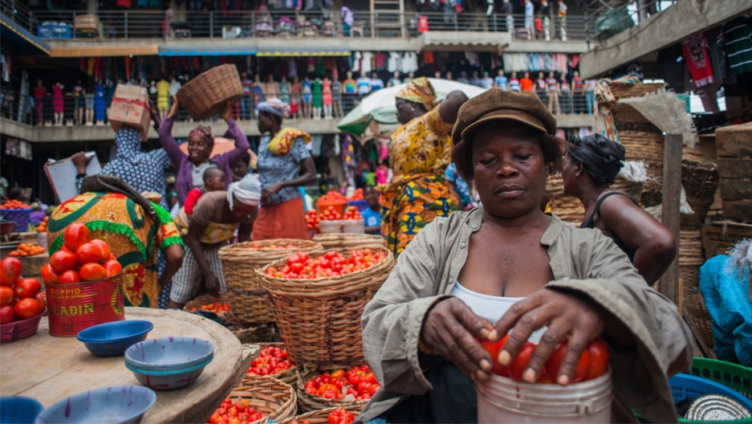The latest GDP figures released by the Ghana Statistical Service have highlighted a decline in the growth of the Ghanaian economy, particularly in the industrial sector, which continues to face challenges. During the second quarter of 2023, the economy expanded at a rate of 3.2%, a figure notably smaller than the previous year's performance (3.5%).
Several key subsectors, including construction, electricity, and manufacturing, all experienced contractions during this period, contributing to the overall economic slowdown. Statistical Service also revised the growth rate for the first quarter of 2023, adjusting it from the earlier reported 4.2% down to 3.3%.
In the second quarter of 2023, the economy displayed a mix of expansion and contraction across various sectors. Notably, the Information & Communication sector experienced remarkable growth, expanding by 26.4%. Fishing also saw a substantial expansion of 12.2% and Social Work expanded by 11.0%.
However, six sub-sectors faced contraction during this period, with construction showing the most significant decline at -11.7%, suggesting potential challenges in the construction industry. Trade, along with repair of motor vehicles and motorcycles, contracted by -5.3%.
Electricity, forestry, water supply, sewerage, waste management and remediation activities, and manufacturing also experienced varying degrees of contraction.
Ghana’s government has already revised its economic projections for the year, reducing the growth forecast by approximately 50%. Additionally, the country is now expecting higher inflation and a primary deficit, a significant shift from the previous hope for a surplus.
During the mid-year budget review in parliament, Finance Minister Ken Ofori-Atta disclosed that last year’s budget deficit was 11.8 per cent of GDP, nearly double the initial target of 6.3 per cent. For 2023, the government anticipates the economy to grow by 1.5 per cent, down from the earlier projection of 2.8 per cent.
These adjustments are attributed to fiscal consolidation measures and challenging global economic conditions.
This downward revision in projected growth for 2023 is attributed to a general slowdown in all three sectors of the economy, influenced by factors such as the fiscal consolidation plan under the three-year IMF-supported programme and challenging global conditions.
Nevertheless, the Finance Minister remains hopeful, projecting that the overall GDP growth will rebound to 2.8%, 4.7% and 4.9% in 2024, 2025 and 2026, respectively.
Latest Stories
-
Asante Mamponghene’s burial rites attract thousands of mourners
9 minutes -
“The job was waiting for me”: MTN Ghana CFO shares journey into telecoms
23 minutes -
Frema Foundation Launches ‘Dignity in Bloom’ initiative to tackle period poverty in Ashanti Region
56 minutes -
Mayor of Accra calls for renewed commitment to climate action as city commemorates June 3 disaster
57 minutes -
Declaration of assets: Special Prosecutor should lead call for asset publication – Dafeamekpor
1 hour -
Empower360 completes third training session for 30 young women under Ghana Grows Program
2 hours -
Sudan: A new gov’t amid escalating military-political conflicts and a deepening humanitarian crisis
2 hours -
National Vaccine Institute makes impressive strides, activate measures for drug production
2 hours -
Ministry of Works and Housing signs MoU for water exploration in Ghana
3 hours -
Tree for Life initiative takes off
3 hours -
FDA destroys counterfeit pharmaceutical products worth GH₵42m
3 hours -
First responsibly mined Ghanaian gold bars presented to Asantehene
4 hours -
Two notorious robbers jailed for a series of attacks in Wa
4 hours -
Ofori-Atta must first be arrested before any trial in absentia – OSP clarifies
4 hours -
QNET reaffirms ethical business practices following false media allegations in Ghana and Burkina Faso
4 hours

